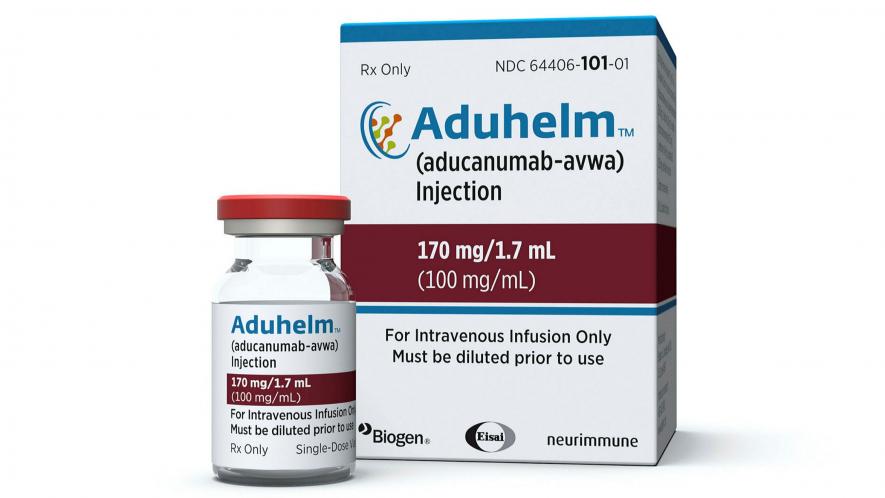Approval of Alzheimer’s Drug by US Authority under Shadows of Doubt

Image Courtesy: AP
The Food and Drug Administration (FDA) of the United States has given approval to a new drug for treatment of the Alzheimer’s disease on June 7. Named aducanumab, the drug is developed by Biogen Inc, a US based company. The FDA release declaring the approval termed it as an ‘accelerated approval’. Under this program of approval, the FDA aims to allow for earlier approval of drugs that can be used for treating serious conditions, which can fill an unmet medical need.
This decision came despite conflicting evidences from two large clinical trials about the ability of the drug to be marketed as ‘Aduhelm’. In FDA’s announcement, they have acknowledged those studies as well.
The approval is said to have been based upon finding strong evidence that the drug can clear a toxic form of a protein known as beta amyloid. The beta amyloid forms plaques in the brain causing neurodegeneration. Reducing the plaques, according to FDA, can bring important benefits to the Alzheimer’s patients.
However, there have been attempts with some other amyloid targeting drugs and in recent years they have failed to show benefits in large clinical trials. In this context, FDA’s decision to approve Aducanumab has attracted mixed reactions. While some researchers have welcomed it, others have termed it as a weakening of standards.
Joseph Ross, an expert in FDA regulatory policy at the Yale School of Medicine, was quoted to have commented on the issue saying, “This approval is going to have monstrous ramifications for the FDA and for our healthcare system in general. It’s like they pulled a thread, and the whole thing is going to unwind.”
“It’s unprecedented, to switch at the last minute from a standard approval process to an accelerated pathway that doesn’t require clinical improvements but instead relies on a surrogate endpoint,” Ross added in his statement.
Now, Biogen will have to complete a clinical trial post approval, in order to verify the benefits of the drug. However, Biogen’s previous two trials with the drug produced gloomy results. These trials comprised over 3000 people and spanned over 20 countries.
Back in 2019, Biogen and its Japanese partner company Eisai while jointly developing aducanumab, declared that they were halting the trial as results from interim analysis of the trials’ data produced no benefits to patients. Seven months later in 2019, they resurrected the drug based on new analysis and new patients. One study, in that analysis, found a 22% cognitive decline in participants that received higher doses in comparison to the placebo group. The second study did not get any benefit either.
These twists in the story of Biogen left many researchers sceptical. At a meeting of the advisory committee of FDA, held in November last year, experts voted that the data was not convincing to show primary evidence for the drug to be effective. It is rare on part of FDA to go against the recommendations of the advisory committee.
Get the latest reports & analysis with people's perspective on Protests, movements & deep analytical videos, discussions of the current affairs in your Telegram app. Subscribe to NewsClick's Telegram channel & get Real-Time updates on stories, as they get published on our website.
























